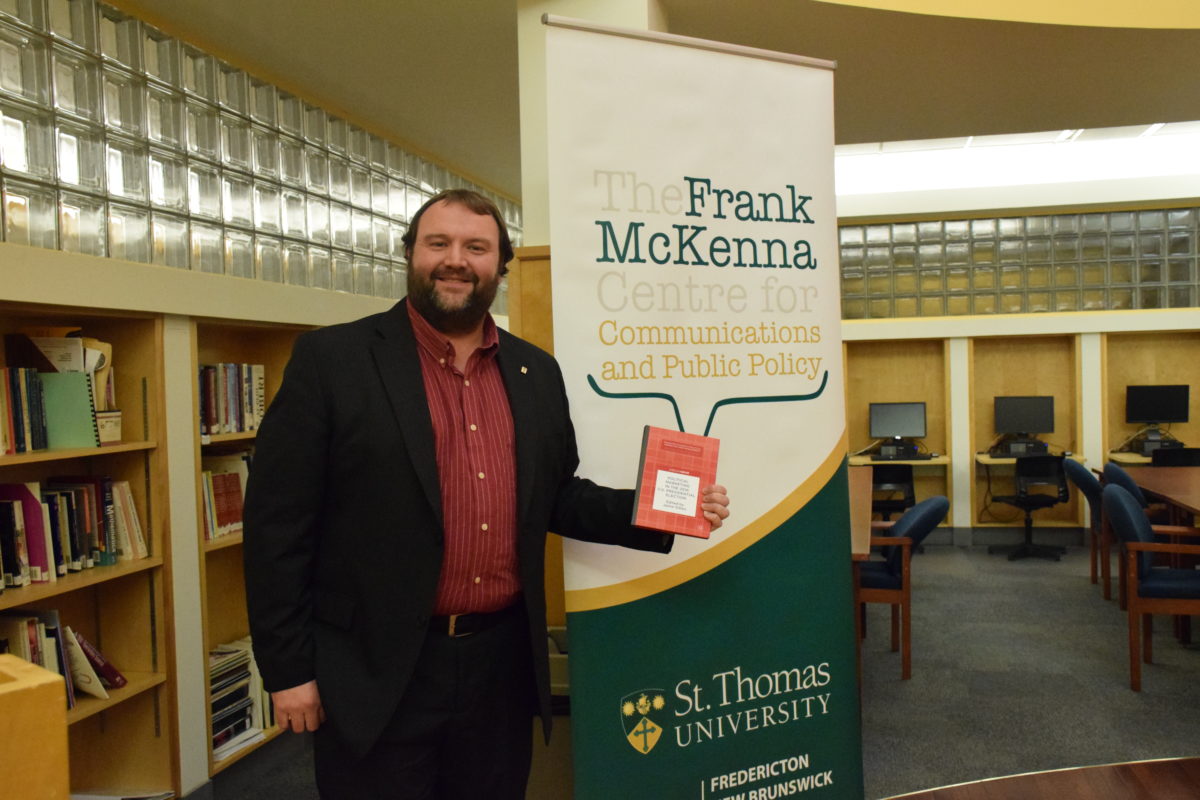
On Nov. 5 Republican leader Donald Trump claimed presidential victory for the second time, beating Democratic presidential hopeful Kamala Harris.
Trump, the former president, won 312 electoral votes, including all seven swing states. He also won the popular vote with over 74 million ballots cast in his name.
St. Thomas University communications professor Jamie Gillies is teaching a course that follows the U.S. election this semester.
Gillies and his class have been following the campaigning strategy that each candidate has deployed.
“The polling showed that it was remarkably close or a toss-up and I think the reason is that Kamala Harris simply had an impossible task, which was that she was the vice president for an unpopular incumbent, President Joe Biden,” said Gillies.
In late July, Biden stepped down from the presidential race, leaving Harris with just 104 days to run a campaign for the presidency.
Related: Presidential debate gives Harris slight edge, may not be enough STU prof reviews
Gillies believes that this, combined with the Democrat’s messaging surrounding the state of democracy and Trump’s lack of fitness for office is what ultimately sunk the Harris campaign.
“The Democrats are very lucky that they had Kamala Harris as such a strong candidate that it wasn’t worse than it was,” said Gillies.
Gillies is an expert in the realm of political science, particularly U.S. elections. Following the 2020 election, he wrote a book titled Political Marketing in the 2020 U.S. Presidential Election. He also wrote a book about political marketing following Trump’s win in 2016.
Gillies said that Tuesday’s result “did not come as a surprise.”
He also explained that Trump ran a campaign heavily focused on the economy, which was one of the most pressing issues for voters.
An ABC News poll published in October showed that 59 per cent of respondents thought the U.S. economy was getting worse. The poll also showed that respondents would trust Trump more than Harris when it comes to the economy and inflation.
“What really happened was that people voting on the economy made the difference,” he said. “In fact, halfway through the campaign the message switched from ‘Make America Great Again’ to ‘Trump will fix it.’”
When looking at NBC exit polls, a trend of the voter demographic within lower-income families leaned towards voting Republican.
What about Canada?
As for how the Trump presidency will affect Canada, Gillies said that “we should be wary of it, concerned and planning for it … Anything the United States does affects us.”
Throughout Trump’s campaign he promised tariffs for trade partner countries. The promise is a minimum 10 per cent global tariffs, which would affect Canada. Experts claim this could result in a 5 per cent loss in GDP.
Many Canadians are wondering what the new presidency could mean for federal politics, a shift that Gillies estimates will become more clear with time leading up to the 2025 federal election.
“Pierre Poilievre is certainly in a strong position to become the next Prime Minister. Does this change for somebody like Trudeau to step aside, or does this make him stronger?”
Gillies explained that it could swing either way, as it depends on if the Liberals try to link Poilievre to Trump as a campaign strategy, as well if the result of this election begins a political era of kicking out incumbent governments.
“Everyone in power in Canada has been watching this very closely and they know what’s at stake,” said Gillies.
He hopes that students are able to not let the result deter them away from their activism.
“For those who do not like Donald Trump and what he stands for, there are things that are still worth fighting for,” said Gillies.
Above all, he said that this election will be discussed “for a long time” due to the fascinating nature surrounding it.
